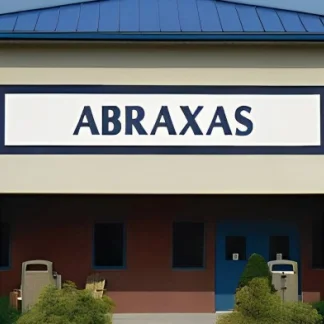Abraxas Academy
Morgantown, Pennsylvania, 1000 Academy Drive, PO Box 645, 19543
Available Programs
- Adolescence program
- Hearing impaired program
- LGBTQ program
- Program for men
- Program for women
- Young adult program
Insurance and Financial
- Medicaid
About this Facility
Abraxas Academy provides specialized, secure residential treatment for delinquent youth. Treatment at the Academy is for youth who demonstrate a consistent display of delinquent patterns through multiple placements, serious charges, and problematic behaviors. Located in Morgantown, PA just minutes from the Pennsylvania Turnpike exit 298, Abraxas Academy is one of the few Joint Commission accredited secure programs in the state of Pennsylvania.
The Abraxas Academy uses The Sanctuary Model for Trauma Informed Care as the framework for treatment. The Sanctuary Model is a blueprint for clinical and organizational change which, at its core, promotes safety and recovery from adversity through the active creation of a trauma-informed community.
Sanctuary emphasizes: the importance of healing from psychological and socially traumatic experiences; community principles; restoring connections with others; and mutual accountability through the S.E.L.F. Model and the Seven Commitments. The Seven Commitments include Non-Violence, Emotional Intelligence, Social Learning, Democracy, Open Communication, Social Responsibility, & Growth and Change.
The Abraxas Academy specialises in Secure Sexual Offender Treatment, Secure Detention, and Shelter Care. Youth are admitted to the Academy either for habitual offending behaviors or for a history of sexual offending behavior. They also offer additional services such as Evidenced based and Promising Practice curriculums, On-site private school which is accredited and licensed by the Pennsylvania Department of Education, On-site PSSA, Keystones (11th grade), SAT testing, and higher education opportunities, Career and Technical Education opportunities, Work Readiness Program, Family therapy, Video Conferencing and Teleconferencing, and Transportation Assistance.
Evidenced based and Promising Practice curriculums to include: ART, PTSD groups, The Sanctuary Model, Young Men’s Work; Stopping Violence and Building Community, and Cognitive Behavioral Therapy; Thinking Errors. Career and Technical Education opportunities to include: Culinary Arts, Barbershop, Electrical, Wood Shop and Horticulture (on-site greenhouse). Work Readiness Program to include job training, volunteer work, and employment proficiency. Residents can receive certification in the following: ServSafe, OSHA, CPR/First Aid.
Additional Services also include Psychological or Psychiatric evaluation within 30 days of admission, On-site medical and dental services, Restitution Program, and Community Service.
The program offers a combination of treatment modalities. Key therapeutic interventions include individual, group and family therapy. Therapeutic groups are facilitated by masters level clinicians and psychoeducational groups are facilitated by treatment staff. All masters level clinicians also hold a sex offender certification. Groups specifically address the residents’ criminogenic needs. Specific focus is placed on Attitudes and Orientation, Personality/Behavior and Behavioral Health, Peer Relations, and Family Circumstance.
Contact us for more information: (610) 913-8000

Contact Abraxas Academy
Connect with Abraxas Academy by calling their admissions team directly.
(610) 913-8000 Website Get Directions